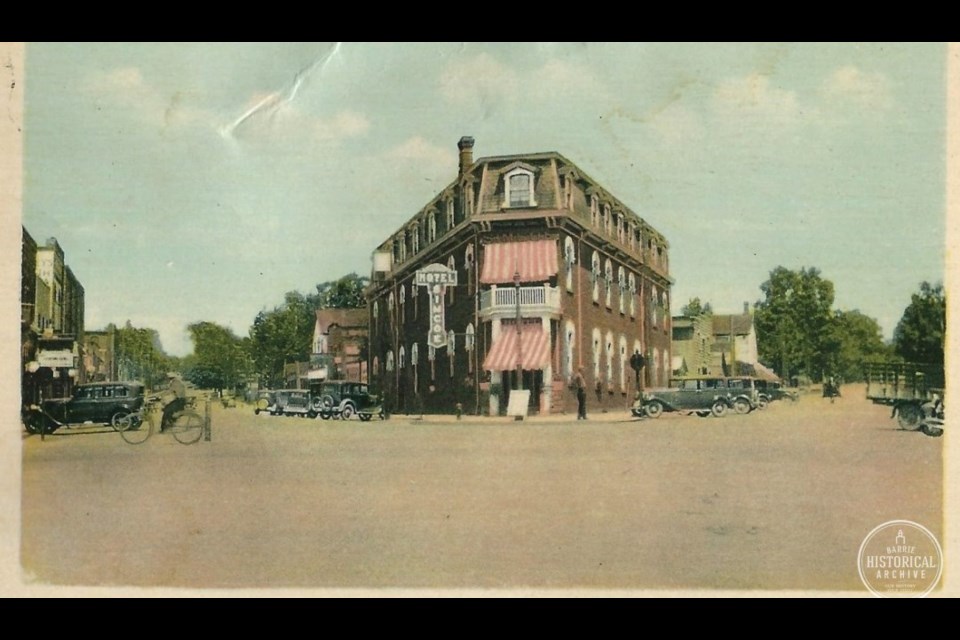It began with words and ended in the loss of one man’s thumb.
Who was this quick-to-anger fellow, anyway? My best guess is it was Leonard Staley, a Flos Township farmer of a similar age to Alexander Rowat, the victim.
Then again, it could easily have been Leonard’s brother, Edward Staley, who was a renowned bear hunter in the locality. Both men were the sons of Baltus Staley, who was born in New York State about 1791.
Perhaps it was George Staley, yet another son, who distinguished himself by getting into two fist fights in one week in September 1882. The second melee occurred at the Barrie Fair and it took “a brigade” of law enforcement to subdue him.
By the 1890s, a new generation of Staleys had found their way into the pages of the local papers. Norman Staley, one of Leonard’s sons, was charged with larceny and for the shooting of a horse belonging to a neighbour in 1893. He pleaded guilty and received a two-year prison sentence.
Norman was a habitual offender. After serving his time, he continued to break the law. In 1897, he was convicted of his fourth offence, breaking into the Phelpston Post Office, for which he got more than six years.
While he was behind bars, two of his younger brothers held his place in the headlines.
Alfred Staley, just 12 years of age, robbed a man of his watch and was arrested for it. The judge passed a sentence of 21 days in the Barrie Jail but commented, “I wish I could order you to be well whipped. I think that would do you more good than anything else.”
To which the father, Leonard, replied, “Yes, until the blood runs down his back,” and then he promptly turned and exited the courtroom.
Upon his release, Alfred commented he enjoyed his stay in the jail and would be happy to live there if only he had his little brother with him for company.
Apparently, he attempted to make his wish come true. Not a month later, Alfred and his nine-year-old brother, Sherbourne, were arrested after attempting a theft and attacking a person when caught in the act.
A lad by the name of Nally saw the pair stealing from his parents’ McDonald Street garden and tried to chase them away. In doing so, he tripped and was pounced upon by the Staley boys, who beat him and threw sand in his eyes. They also relieved him of his cap and of a revolver in his pocket.
Their father, Leonard, appeared in court Oct. 3, 1898, to give his position. He told the judge he had seven boys at home and had not been able to send any of them to school. His own poor health made it hard for him to work and to provide food and good clothing for them.
The following summer, Alfred was caught in the act of robbing the Simcoe Hotel. Sherbourne, too, continued to struggle with obeying the law. In the 1920s, his name appeared on a list of inmates in Kingston Penitentiary.
Meanwhile, Norman must have been released on good behaviour as he was back in Barrie in 1902. We know this because he was arrested in April of that year for robbing St. Mary’s Roman Catholic Church. He got five years in Kingston Pen.
Perhaps the Staley clan had never had an easy time. Their patriarch, Baltus, was of Dutch descent and his grandparents had fled the Palatinate region of Germany in the early 1700s. Very likely, the Staleys had taken refuge in that part of Germany a century earlier, after religious upheavals in their native Holland forced them to leave.
Originally, the refugees fleeing the Palatinate region were taken in by Britain but were soon unwelcome there, too, and went on the move once again. This time, the destination was New York State.
When the United States began to have struggles of its own, the American Revolution displaced people like the Staleys once more.
Many crossed into Canada and made their way to communities such as Uxbridge, Pickering, Markham and Whitchurch, which were United Empire Loyalist-friendly places. These areas were also known for accepting people of typically persecuted faiths such as Quakers and Mennonites. It is known the Staleys of Flos had connections to both Whitchurch and Markham.
It does make me wonder: Would several centuries of near-constant upheaval and struggle create people who were always ready for a fight? I would not be surprised.
Each week, the Barrie Historical Archive provides BarrieToday

